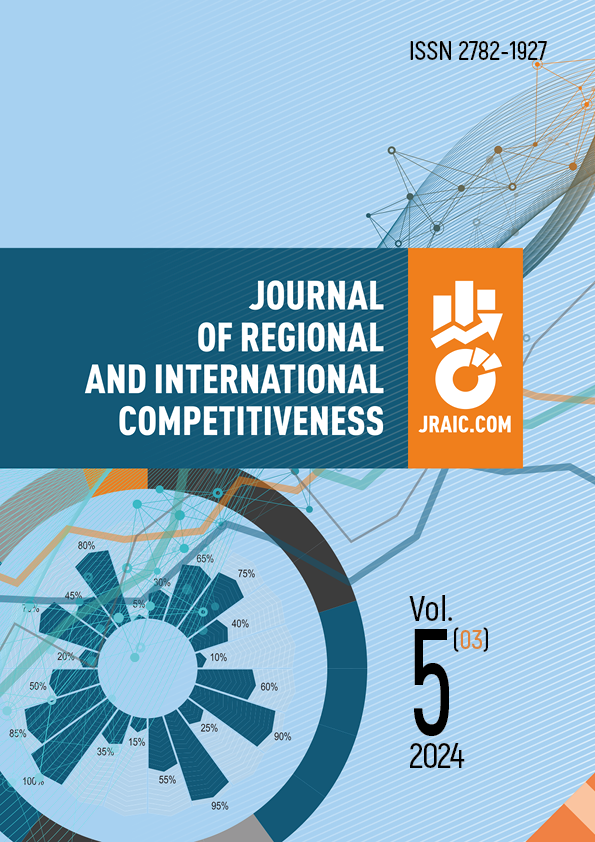The Russian Presidential Academy of National Economy and Public Administration (Ivanovo Branch)
Ivanovo, Ivanovo, Russian Federation
The development and implementation of regional ratings/rankings by Russian rating agencies, universities or sustainable ESG development companies contribute to the improvement of Russian national statistics on sustainable development. Rating agencies use different methods in compiling ESG ratings. Consequently, the same regions can rank different positions with the same initial data. Therefore, there is a need of unified methodological approach. It allows ones to assess the parameters of regional sustainable development and ESG transformation, measure the level of sustainability and determine the trends of their sustainable development. In this article, we will analyze the three most popular ESG ratings of Russian regions. The paper presents the results of the ESG rating/ranking of the Central Federal District regions, the Russian Federation. The main 3 analytical methods are as follows: The National Rating Agency, the RAEX rating Consortium, and the Center for Sustainable Development and ESG Transformation at the Moscow State Institute of International Relations (MGIMO). The ranking of regions according to the methodology of the National Rating Agency and the RAEX rating group considers components E, S, and G; MGIMO 2023 methodology considers Sustainable Development Goals within clusters (economic, environmental, social, and institutional ones). According to the research, there is a necessity to enhance the Sustainable Development Goals indicators in order to improve the position of the particular Central Federal District region.
sustainable development; regions ESG transformation; ESG ratings/rankings of regions; sustainable development goals; recommendations of regional authorities
1. Abdullina, L. G. (2023). The positions of the Republic of Tatarstan and large industrial enterprises of the region in the ESG rating system in the context of the crisis. Strategiya social'no-ekonomicheskogo razvitiya obshchestva: upravlencheskie, pravovye, hozyajstvennye aspekty: sbornik nauchnyh statej 13-j Mezhdunarodnoj nauchno-prakticheskoj konferencii (Vol. 1, pp. 8-14). Kursk: ZAO "Universitetskaya kniga" (in Russian).
2. Altufyeva, T. Yu. (2022). Increasing the importance of compliance of the economy of the regions of the Russian Federation with ESG standards in the context of sanctions. Fundamental'nye issledovaniya, (12), 123-129 (in Russian).
3. Berendeeva, A. B. (2024). Institutional environment of sustainable development and ESG transformation of the Russian economy: mega-, macro-, meso- and micro-levels. Teoreticheskaya ekonomika, (1), 98-119. Retrieved from http://www.theoreticaleconomy.ru. (accessed 18.04.2024).
4. Berendeeva, A. B., & Nikolaeva, E. E. (2024). Sustainable development and ESG-modernization of the economy: theories and concepts. Vestnik Tver. gos. un-ta, (1), 246-258 (in Russian).
5. Burik, M. V., & Burik, O. V. (2022). The use of an ecosystem approach in assessing the state of the region. Ekonomika: teoriyaipraktika, (2), 15-25 (in Russian).
6. Valeeva, R. R., Sushkova, A. R., & Vasiliev, V. L. (2021). ESG-rating of the Volga Federal District regions. Aktual'nye voprosy gumanitarnyh i obshchestvennyh nauk: sbornik nauchnyh trudov, priurochennyj k godu nauki i tekhnologij (pp. 210-214). Nalchik: Kabardino-Balkarskij gosudarstvennyj universitet im. H.M. Berbekov (in Russian).
7. Grenaderova, M. V. (2023). ESG ratings and rankings: their importance for companies and the region of their presence. Vestnik Severo-Vostochnogofeder. un-ta im. M.K. Ammosova. Ser.: Ekonomika. Sociologiya. Kul'turologiya, (4), 69-78 (in Russian).
8. Nikonorov, S. M., & Bogomazov, P. A. (2023). The path to sustainable development in Russia: an assessment of ESG transformation and adaptation to the specifics of companies and regional peculiarities. Izvestiya Subtropicheskogo nauchnogo centra Rossijskoj akademii nauk, (3-1), 34-47 (in Russian).
9. Perekrest, N. V., & Zatepyakin, O. A. (2023). ESG ratings and ESG rankings as a tool for assessing the sustainable development of regions. Nauka i molodezh': problemy, poiski, resheniya. trudy Vserossijskoj nauchnoj konferencii studentov, aspirantov i molodyhuchenyh (pp. 52-56). Novokuznetsk: Sibirskij gosudarstvennyj industrial'nyj universitet (in Russian).
10. Trachenko, M. B. (2021). Assessment of the ESG policy of the Russian regions. Ekonomikai sovremennyj menedzhment: teoriya, metodologiya, praktika. Sbornik statej XIII Mezhdunarodnoj nauchno-prakticheskoj konferencii (pp. 92-94). Penza: Nauka i Prosveshchenie (in Russian).
11. Shamsutdinova, M. R. (2022). Methodological approaches to the assessment of the region based on the ESG rating (on the example of the Republic of Tatarstan). Voprosy regional'noj ekonomiki, (4), 127-135 (in Russian).
12. Shishkina, E. A. (2023). Theoretical, methodological and applied aspects of the development of an industrial region in the context of ESG. Nauka i praktika regionov, (4), 52-58 (in Russian).
13. Decree of the President of the Russian Federation N 68 on February 4, 2021 "On Evaluating the Effectiveness of the Activities of Senior Officials (Heads of Supreme Executive Entities) of the Regions of the Russian Federation and the Activities of Executive Authorities of the Regions of the Russian Federation" Retrieved from http://publication.pravo.gov.ru (in Russian).




















